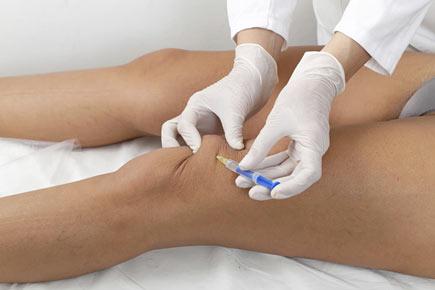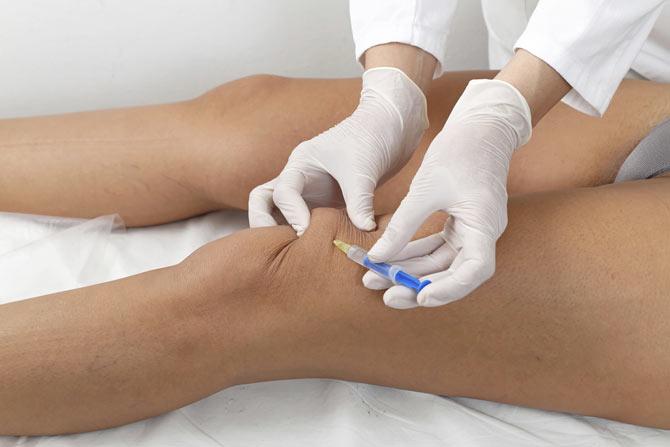A US orthopedics research team is developing an injectable gel that encourages self-healing of damaged tissues after a knee-injury

Washington: A US orthopedics research team is developing an injectable gel that encourages self-healing of damaged tissues after a knee-injury.
The new solution could result in a minimally invasive, practical, and inexpensive approach for repairing cartilage and preventing osteoarthritis, the study noted.
ADVERTISEMENT

Representational picture
"We are creating an (injectable, bioactive) hydrogel that can repair cartilage damage, regenerate stronger cartilage, and hopefully delay or eliminate the development of osteoarthritis and eliminate the need for total knee replacement," said first author of the study Yin Yu from the University of Iowa.
The researchers had previously identified precursor cells within normal cartilage that can mature into new cartilage tissue. This was a surprising discovery because of the long-held assumption that cartilage is one of the few tissues in the body that cannot repair itself.
The team also identified molecular signalling factors that attract these precursor cells, known as chondrogenic progenitor cells (CPC), out of the surrounding healthy tissue into the damaged area and cause them to develop into new, normal cartilage.
One of the signals, called stromal cell-derived factor 1 (SDF1), acts like a homing beacon for the precursor cells.
In an experimental model of cartilage injury, the researchers loaded the custom-made hydrogel with SDF1 and injected it into holes punched into the model cartilage.
The precursor cells migrated toward the SDF1 signal and filled in the injury site. Subsequent application of a growth factor caused the cells to mature into normal cartilage that repaired the injury.
"The new cartilage integrates seamlessly with the undamaged tissue, it has normal concentrations of proteoglycans, good structural properties, and looks like normal cartilage," Yu noted.
The study appeared in the journal Arthritis and Rheumatology.
 Subscribe today by clicking the link and stay updated with the latest news!" Click here!
Subscribe today by clicking the link and stay updated with the latest news!" Click here!







